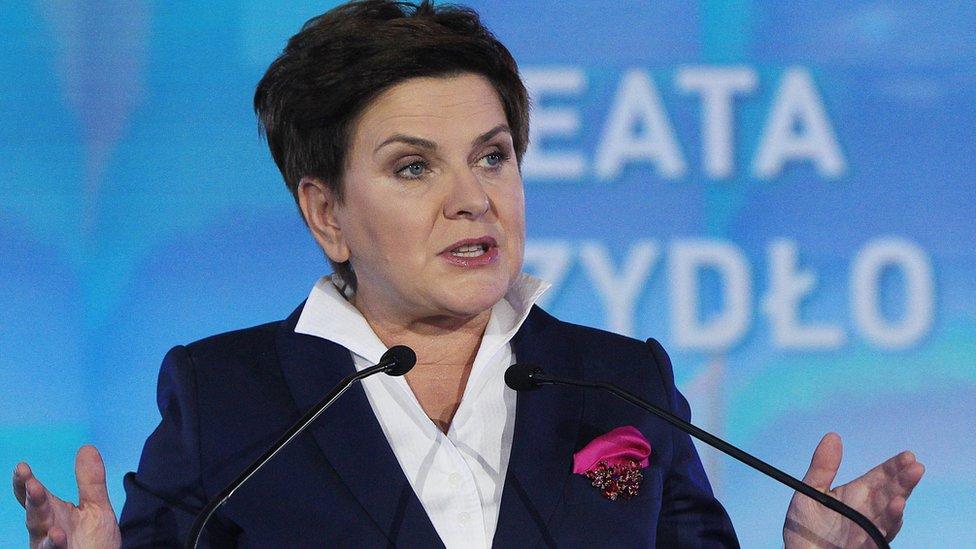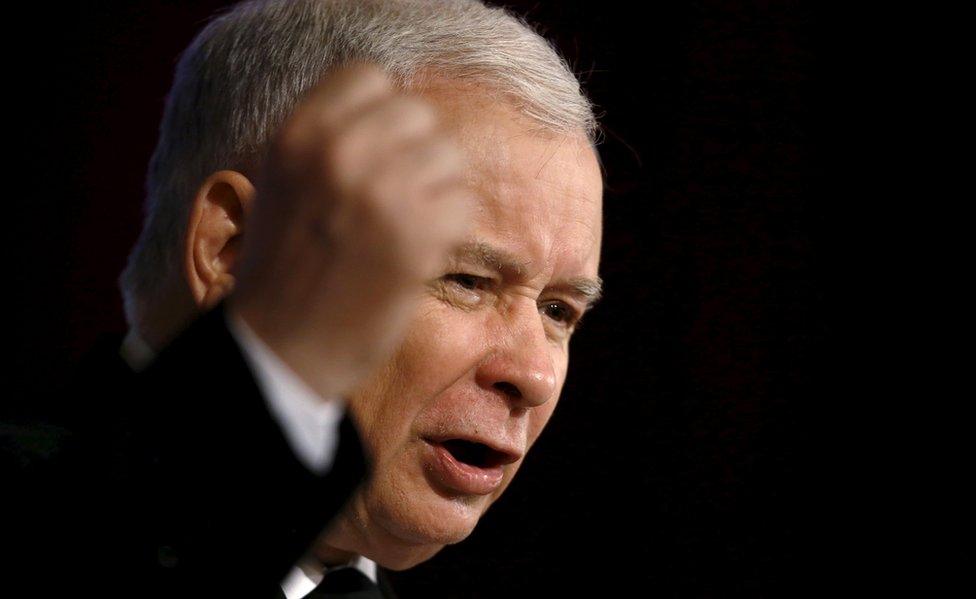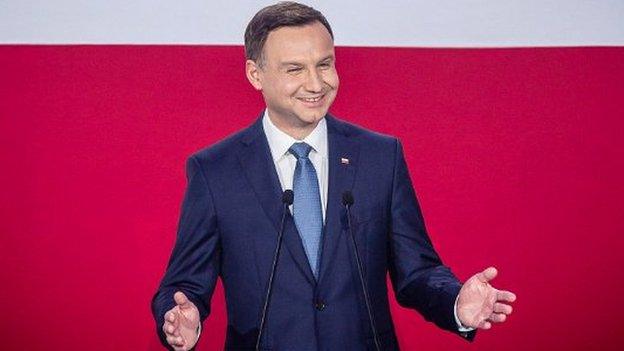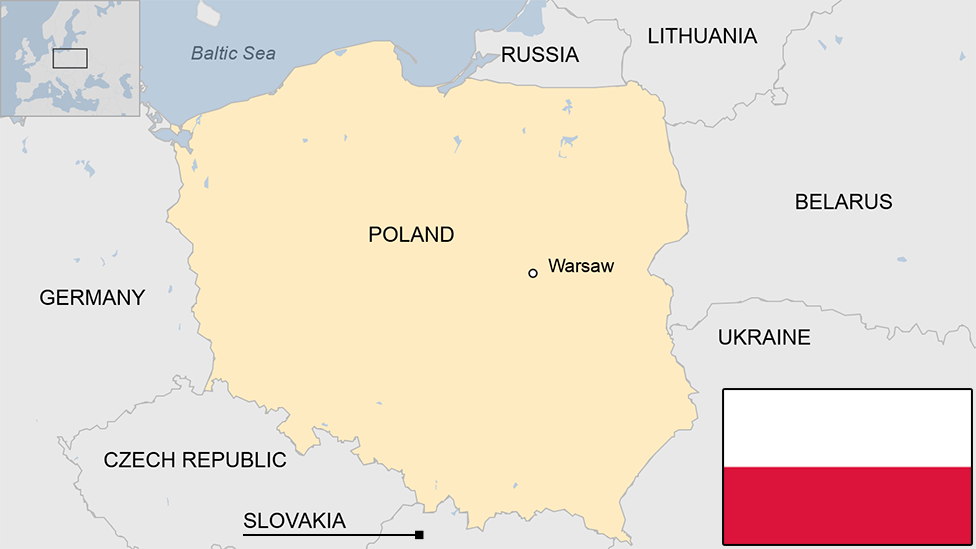Beata Szydlo: Polish miner's daughter set to be PM
- Published

Beata Szydlo is seen as a skilful - if less than charismatic - campaigner
Conservative Beata Szydlo is no new rising star of Polish politics but she is poised to oust a woman rival - Ewa Kopacz - from the prime minister's office.
The Law and Justice Party (PiS) - eurosceptic and strong on traditional values - made a dramatic comeback in Sunday's general election.
Ms Szydlo, 52, has been a conservative MP for a decade. But she impressed many Poles and her party leader, Jaroslaw Kaczynski, earlier this year by running Andrzej Duda's successful presidential campaign.
A relatively unknown MEP, Mr Duda surprised almost everyone by beating the popular incumbent, Bronislaw Komorowski, in May.
During an energetic campaign, Mr Duda travelled the country, with Mrs Szydlo by his side, meeting and listening to as many Poles as he could. Ms Szydlo's role in his success was recognised when Mr Kaczynski appointed her the party's candidate for prime minister.
"The fresh, moderate face of the Polish right. She is the hard-working, skilful and intelligent woman behind Andrzej Duda's spectacular victory in the presidential race," said Marek Magierowski, President Duda's public diplomacy adviser.
That "fresh" face is important here - it sets her apart from the governing centre-right Civic Platform which, after eight years in office, lost much support. But she also contrasts with her boss, Mr Kaczynski.
'Daddy was a miner'
Mr Kaczynski, a 66-year-old bachelor, is a divisive figure. He is not afraid to accuse his political opponents of being on the side of the former communist police and, more recently, he warned that immigrants were bringing diseases with them from the Middle East.

Staunchly pro-EU Civic Platform, led by Ewa Kopacz, has been in power for eight years
Led by Mr Kaczynski, Law and Justice had lost every major national election since 2007 until he stepped aside to allow Andrzej Duda to run for president this year.
Like Mr Kaczynski, Ms Szydlo stresses the importance of traditional Roman Catholic family values and the need to help the many who feel they have not benefited from Poland's impressive economic growth during the past two decades. But her tone is more measured.
She was born and raised near the southern Polish coal-mining town of Brzeszcze. "I remember my warm family home with affection," she writes on her webpage. "There was no lack of support, nor discipline. My parents worked hard. Daddy was a miner," she said.
She says she enjoyed reading and played handball during her student days in Krakow's Jagiellonian University, where she met her husband, Edward. They have two sons.
She became the youngest mayor in Malopolska province at the age of 35, and later joined Law and Justice, where she rose to become a deputy leader.
"Never a cabinet member, she'll face a steep learning curve as prime minister. Nevertheless, her views on the economy, a mixture of welfare and laissez-faire, have been her best asset during the campaign - at least in the eyes of the conservative electorate, appalled by the scale of corruption and indolence of the outgoing government," Mr Magierowski said.
Back-seat driver?
Some critics, however, question her independence with Mr Kaczynski in the back seat.

Jaroslaw Kaczynski has been undiplomatic on Germany, migrants and some other topics
A recent Civic Platform TV campaign spot shows Mr Kaczynski making several gaffes, followed by Ms Szydlo repeating "the chairman is always right".
In 2005, concerned that Poles would not accept both himself and his identical twin, Lech, in the country's top two jobs, Jaroslaw stood aside to help Lech win election as president.
Jaroslaw Kaczynski selected the relatively unknown Kazimierz Marcinkiewicz for prime minister, who lasted just eight months before he made way for his boss.
One of those critics is columnist Konstanty Gebert. "She won't last long. She is a creation of chairman Kaczynski and she serves at his pleasure," he told the BBC.
"She has proven to be as uncharismatic as Prime Minister Kopacz, which is no mean feat. She will be replaced as soon as Kaczynski decides to reshape the cabinet."
- Published25 May 2015

- Published20 January
